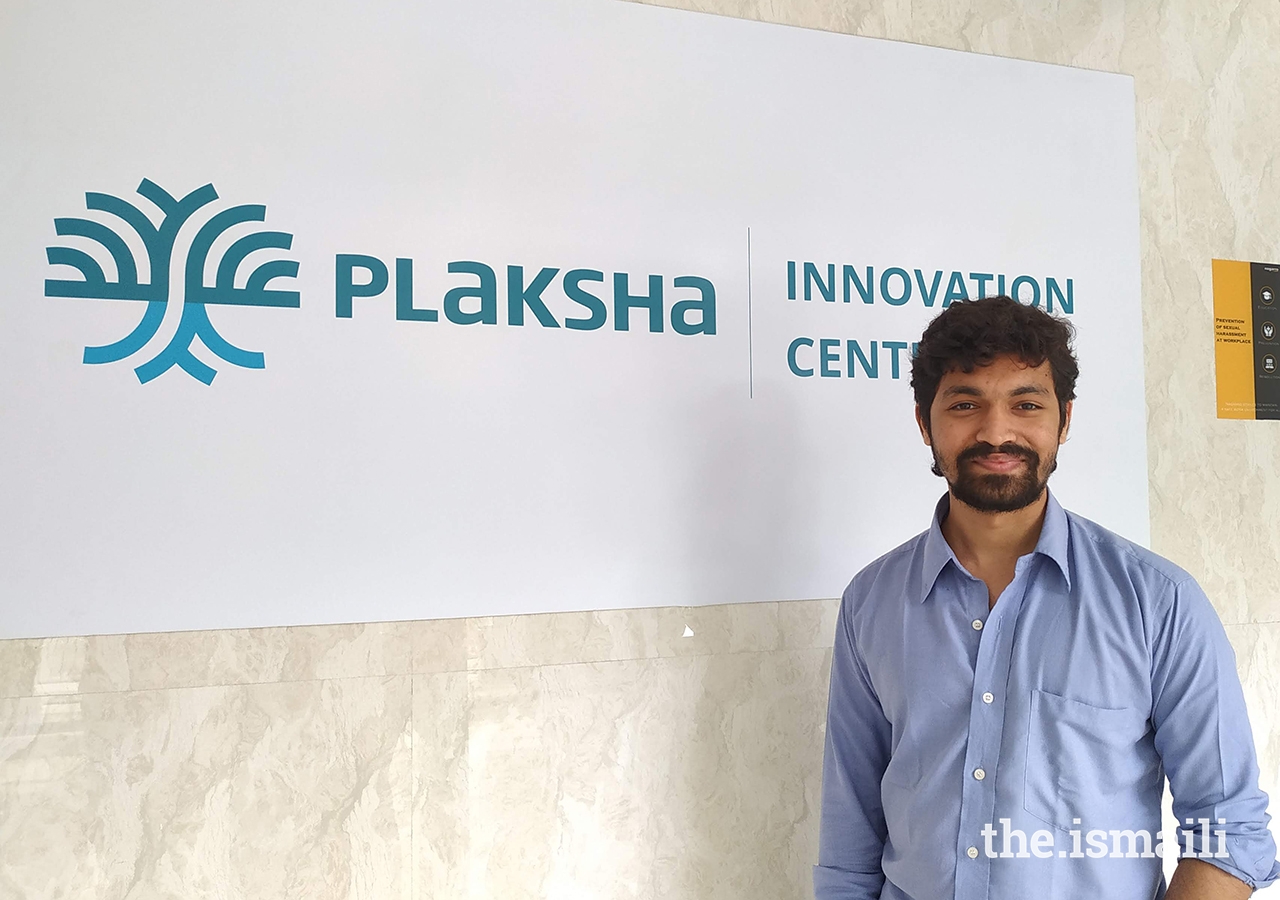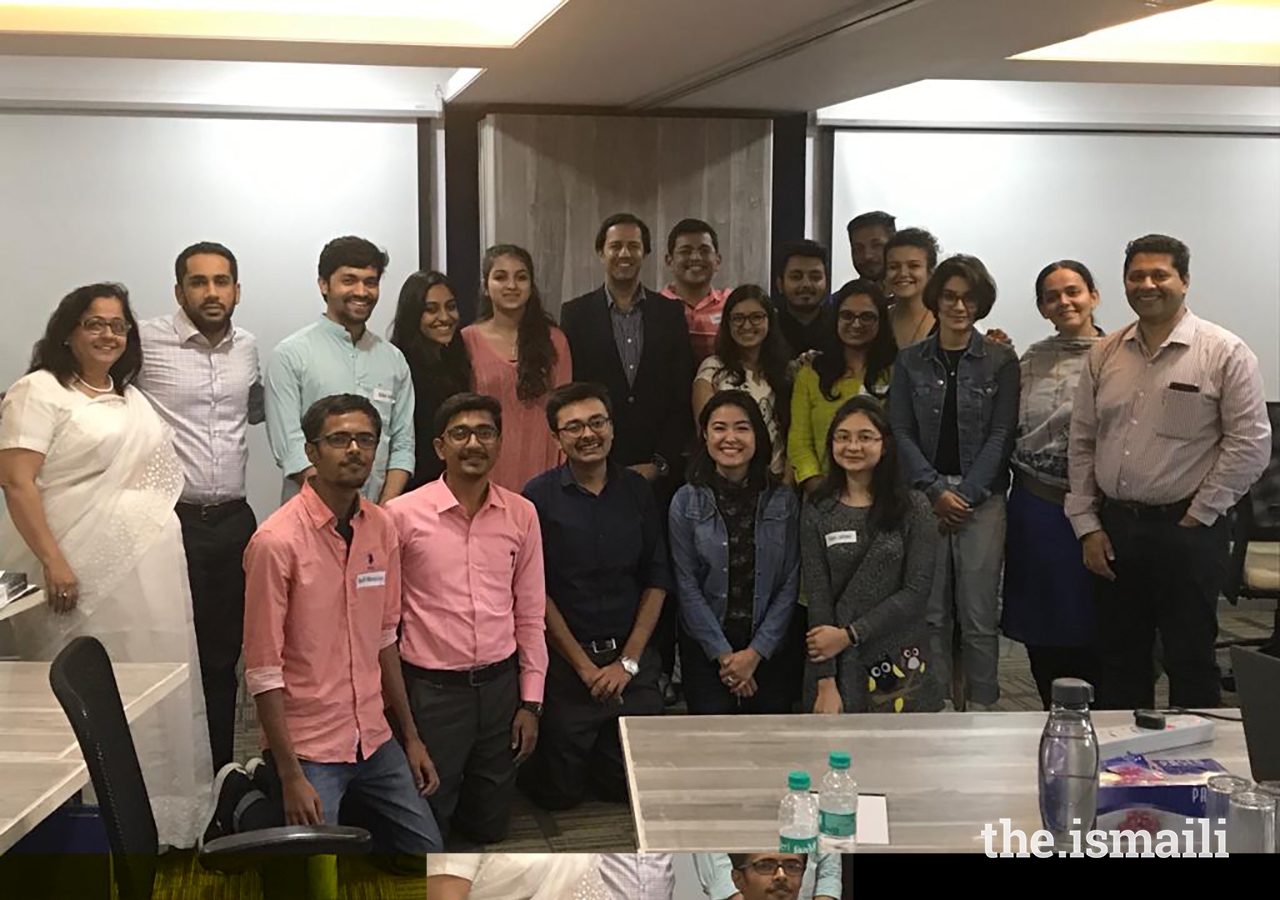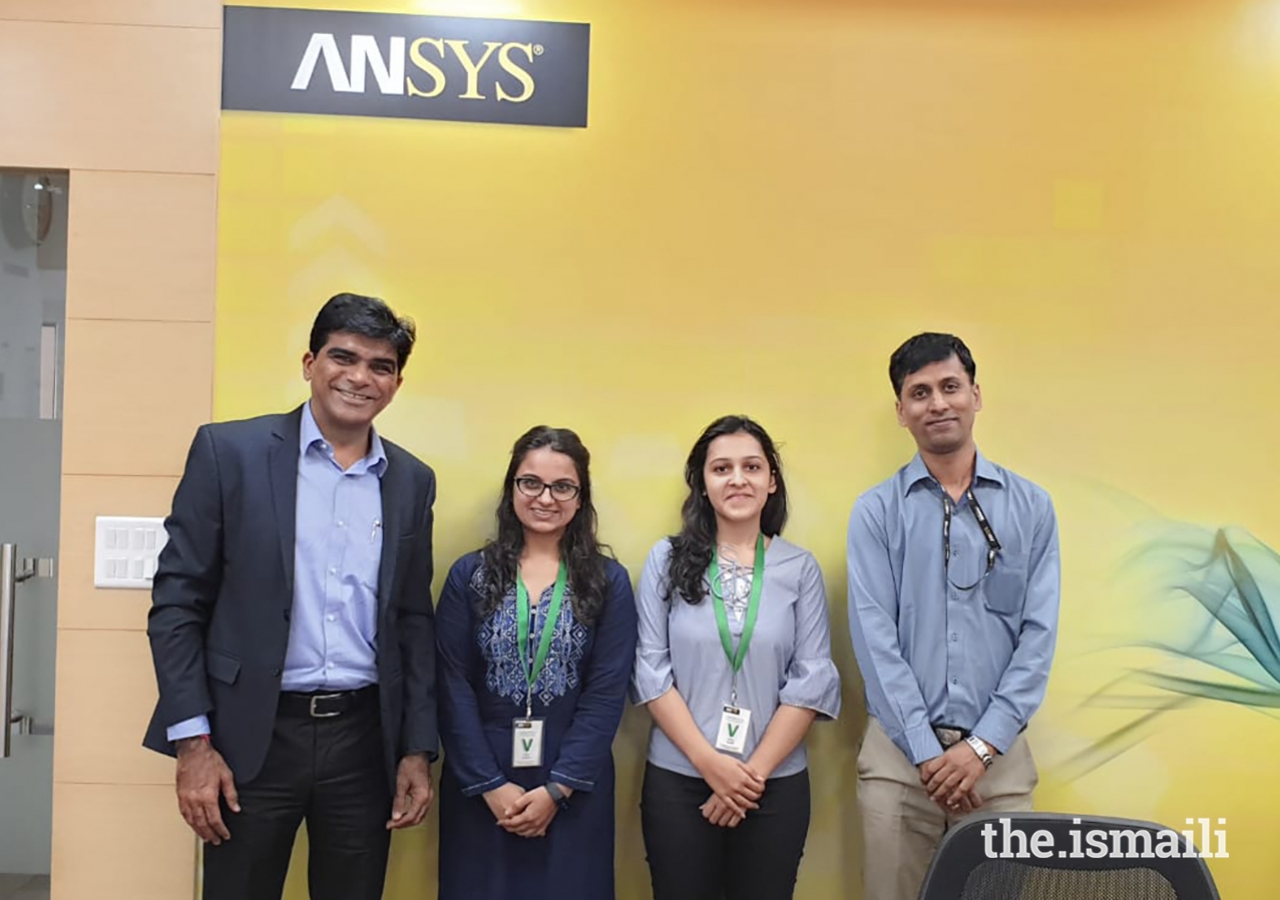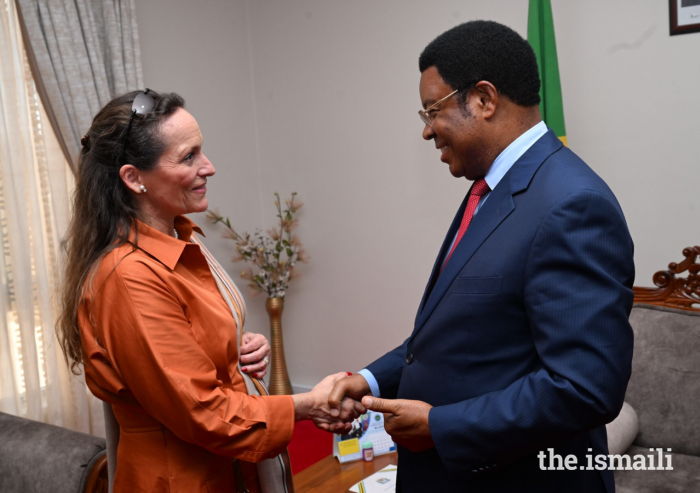“People always say ‘not every opportunity is made for you’, but they don't say that every opportunity you grab makes you. This past year has made me realise that every opportunity that life throws at me is an opportunity to evolve,” said Rahim Panjwani, an engineering student from Surendranagar. Rahim, an alumni of the programme, joined when he was in the final year of his engineering degree. A self-professed techie, Rahim was curious to explore the field but lacked guidance and confidence. After participating in the programme late last year, Rahim’s enthusiasm for tech transformed into a concrete plan for a career in machine learning.
Since its launch in 2016, Reach for the Stars, run by the Aga Khan Education Board for India, has tapped the talent, potential, and promise of students from across the India Jamat. Structured as a nine-month initiative, the programme seeks to inspire Ismaili youth to pursue high-quality tertiary education by pairing academically-driven youth between the ages of 18-25, with mentors from their field of study.
Each student is offered access to a dedicated mentor, immersion learning, seminars and events, and internships where possible. Students are divided into “tracks” or subject-specific groups, allowing the opportunity for collaborative events and peer mentoring. One among the many tracks of the programme is the technology track.
“India is home to the third largest number of unicorns (private startup companies valued at USD $1 billion or more). The opportunities are endless. It is very important to promote and nurture tech talent in India given the young demography of the country and its ability to adapt to tech-based solutions,” said Aslam Hirani, Chairman of the Aga Khan Education Board for India.
By the end of the programme, Rahim had landed a job at Tata Consultancy Services, a multinational information technology service and consulting company. Another alumni, Tamanna Patharwalla, a mechanical engineer, won the Pratibha Award for exceptional women engineers; and Akbar Surani, an aspiring data scientist received multiple scholarships to pursue a top-tier academic programme.
Interventions are carefully curated to the needs of each individual student on the programme. Therefore, for example, Akbar was given the opportunity to attend a writing residency programme by Dr Fayyaz Vellani, Lecturer in Critical Writing at the University of Pennsylvania. An essential part of the overall programme, the residency was designed to help students develop the vital skills of writing, for academic and admission essay requirements. This coupled with working with a writing tutor, helped Akbar articulate his goals and aspirations while applying for a unique multidisciplinary programme called the Plaksha Tech Leaders Fellowship. Guided by strong mentors, Akbar not only gained acceptance to the programme, but also won scholarships.
Surrounded and guided by the best of mentors and facilitators, the programme ensures that the students always have someone to reach out to for help and guidance.
“Saumil Barolia, my facilitator, was basically in the passenger seat for me. In spite of his personal and professional commitments, he was always so approachable and willing to go the extra mile and help out. At times, we have stayed up till the early hours of dawn working together on my applications,” said Rahim.
The mentor-mentee relationship is a two-way street, which often ends up being a learning experience for many mentors as well. Speaking of intrinsic rewards, one of the mentors said, “The mentees’ curiosity, enthusiasm, and drive to achieve is contagious and has helped me in my career too. Mentoring has also helped me strengthen the concepts and lessons I learnt.”
The willingness of mentors and facilitators to open up their networks for immersion visits has been vital to the success of the programme. These immersion visits (structured as two or three day visits that aggregate students across the same track) have enabled participants to get a closer look at niche specializations, emerging opportunities, and the finer nuances of the start-up ecosystem.
Participants of Cycle 3 had the opportunity to engage in discussions with Abhinav Aggarwal and Suveer Bajaj, CEOs of Fluid AI and Foxymoron. An inspiring conversation with CIO of Alkem Labs, Ganesh Ramachandran, took them through the journey of his life and showed them how unpredictable corporate careers can be and how being open to every opportunity can help achieve great heights.
For Akbar, one of the highlights of his journey was the opportunity to speak to Shailesh Kumar, the Chief Data Scientist at Reliance Jio.
“Sailesh helped me chalk out my short-term career plan, and gave me useful advice about nanodegrees, projects, and PhDs. Incredibly, that hour-long conversation has helped me shape my career over the past year and beyond,” said Akbar.
The idea is to not only make these opportunities available for the participants, but to empower them to seek such opportunities on their own.
“One thing I’ve learnt is that people absolutely love to talk and help. So ask! You’re bound to learn something new and come out richer from the experience,” said Tamanna.
A byproduct of the immersion programmes was the networking opportunity the participants had among themselves.
“Problems, solutions, discussions, and debates – this was the cycle of events that took place late at night during our immersion visits,” said Rahim, when asked about one of his most enjoyable experiences.
The bonds that they made at these immersion visits transcend the programme itself. During the Covid-19 pandemic, Tamanna’s father, a retailer, had to shut down his business just like everyone else. Tamanna reached out to her programme fellows asking if they could help build a website for her father. She was greeted with an overwhelming response and, remarkably, the website is almost ready to launch.
The mentorship cycle is a self-sustaining one. When the students receive the vast expanse of knowledge and exposure through their experience in the programme, it has the potential to turn them into future mentors who are more than willing to help.
As a testament to this, Rahim, is now on the Reach for the Stars student committee and hopes to help as many students as possible, especially those that have the potential but lack the confidence, to believe in themselves. Akbar recently hosted a webinar for the current batch of students on how to get started with a career in data science.
Now in its fourth cycle, Reach for the Stars has evolved every year. While the tracks are well established, the programme hopes to move towards convergence; mixing students across tracks and disciplines to break up the artificial silos that are so often created by the educational system.
“It would be exciting to see interdisciplinary tracks which allow students to collaborate across disciplines and learn,” said Chairman Aslam. “That’s our next small step for Reach for the Stars and a giant leap for our students.”










